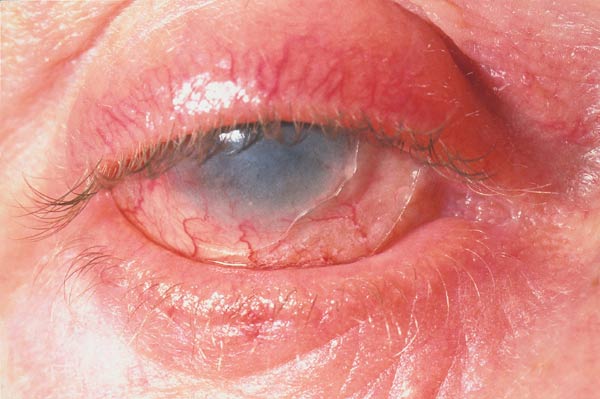Stevens-Johnson syndrome is a serious systemic allergic reaction with a characteristic rash involving the skin and mucous membranes, including the buccal mucosa i.e. inside of the mouth. Stevens - Johnson syndrome (SJS) is also called as erythema multiforme major. Stevens-Johnson Syndrome Stevens - Johnson syndrome is a rare but serious condition involving inflammation and causing blistering of the skin and mucous membranes. It was in 1922 when Stevens and Johnson first described 2 patients i.e. boys aged 7 and 8 years showing an extraordinary, generalized inflamed buccal mucosa, eruption with continued fever, and severe purulent conjunctivitis and both the cases were misdiagnosed by primary care physicians as hemorrhagic measles and Erythema multiforme, originally described by von Hebra in 1866. Stevens - Johnson syndrome can cause serious eye problems, such as severe conjunctivitis, Iritis - an inflammation inside the eye, corneal blisters and erosions, corneal holes.
Symptoms of Stevens-Johnson syndrome include::
Facial and tongue swelling
Hives
Skin pain or shedding a red or purple skin rash that spreads quickly
Blisters on the mouth, nose and eyes
Fever, sore throat, cough or burning eyes
Usher syndrome type III (USH3)

One of the major causes of Stevens-Johnson syndrome is some of the infections such as Herpes, the flu, HIV, diphtheria, typhoid and hepatitis. Anti-gout medications like allopurinol, non-steroidal anti-inflammatory drugs like penicillin also causes Stevens-Johnson syndrome. It is estimated that, in 3 to 15 percent of cases, patients with severe Stevens Johnson syndrome die.
People with Usher syndrome type III experience progressive hearing loss and vision loss beginning in the first few decades of life. They are born with normal hearing and near-normal balance but after some years they develop vision problems and then hearing loss. There is good genetic evidence that the gene for USH3 is located on a different chromosome than the locations of USH1 and USH2. People with Usher syndrome type III may also develop difficulties with balance due to inner ear problems. Type III Usher syndrome accounts for only a small percentage of all Usher syndrome cases in most populations..
About Eye
Eye Diseases
Vision problems
Find Cost
Surgeries & Treatments
Best Eye Hospitals
Testimonials
Get Free Quotes
Top Hospitals In India
Top Hospitals In Turkey
Top Hospitals In Mexico
Top Hospitals In Costa Rica
Top Hospitals In Singapore
Top Hospitals In UAE
Top Hospitals In Australia
Top Hospitals In Malaysia
Top Hospitals In Thailand
Top Hospitals In Phillipines
Cataract Surgery
Intacs
Astigmatic Keratotomy(AK)
Canalicular Tear Repair
Chalazion Surgery
Conductive Keratoplasty(CK)
Corneal Transplantation
Lasik Surgery